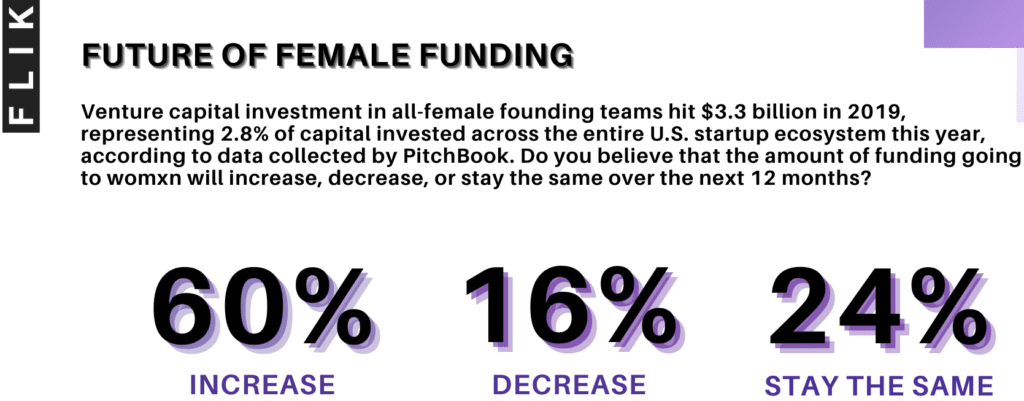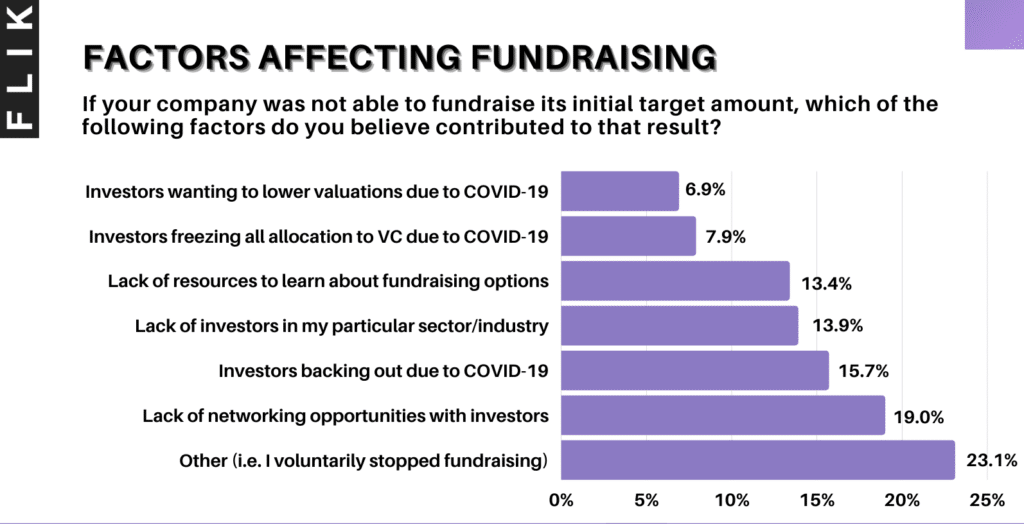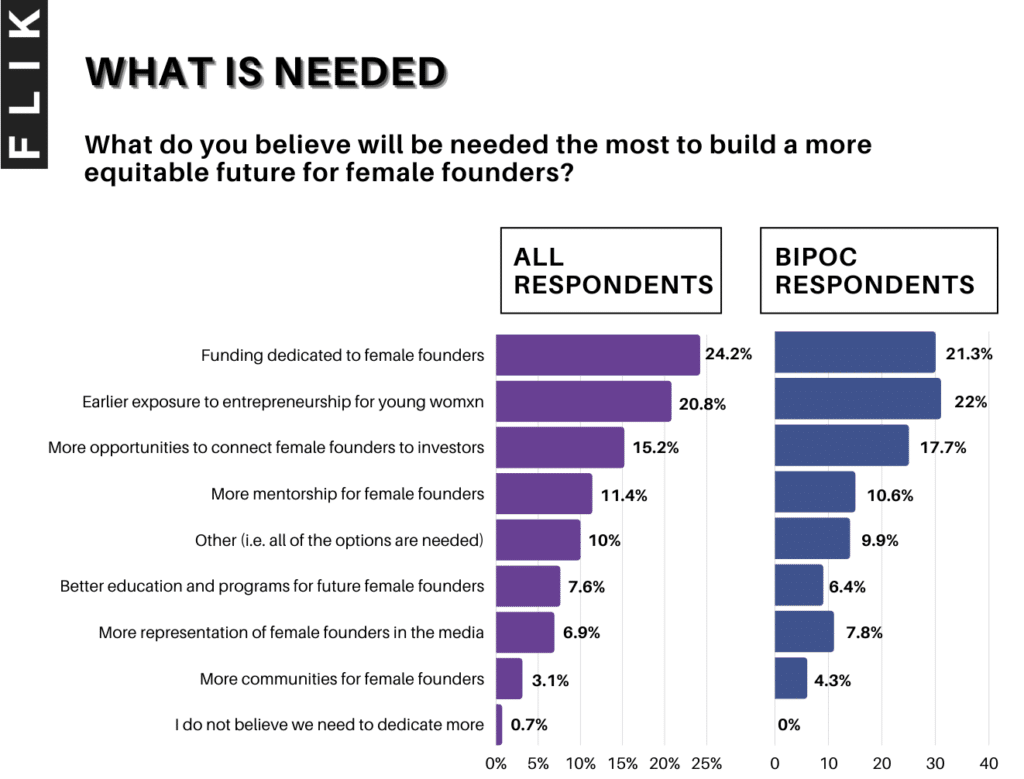2020 trends: the future of female founders

This week in EVE voices, we are sharing a summary of insights published recently by FLIK (an apprenticeship portal for female founders) following a survey within their community of founders on how female founded companies have endured 2020, their hope for 2021 and where they see the future of the female founders community.
By guest contributors, FLIK
Female Laboratory of Innovative Knowledge (FLIK) surveyed 289 founders in order to gain insight into the future of womxnowned businesses. Respondents were asked about how their fundraising activities have been affected by the events of 2020, their perceptions on the impacts that the Black Lives Matter(BLM) movement has had on their businesses, predictions for 2021, and what they see for the future of the female founder community.
FLIK partnered for expert insights across the community from venture capitalists to non-profit organizers and collaborated with the following organizations to increase the awareness and reach of the survey to founders internationally: The51, League of Innovators, Herstory, brAIMS, Canadian Women’s Chamber of Commerce, Women in Tech World, Afrohub, Connection Silicon Valley, Human Capital, Btchcoin, Chronically Capable, Tease Tea Founders Fund, Forum For Women Entrepreneurs, ELLA Accelerator for Women Entrepreneurs, and Dreamers & Doers.
In this survey 91% of respondents identified as womxn, 49% of all respondents identified as a person of color, 75% of respondents were early-stage founders, identifying themselves as being at the preseed, seed, or series.

A stage Pre-seed and seed stage womxn founders had a tougher time meeting their initial 2020 fundraising goal than founders who are at later stages.
Of the womxn founders fundraising this year:
- 28% of seed stage founders were able to meet their fundraising goal
- 28% of the pre-seed stage founders were able to meet their fundraising goal.
Founders think the increased social consciousness surrounding Black Lives Matter has brought about temporary change in the world of VC and fundraising for Black founders, but these changes will not be long-term or systemic in nature.
- 50% of all respondents believe that an increase in funding available to Black founders resulting from the rise of the Black Lives Matter movement will be short-term.
Womxn founders did not see themselves represented within the role models they had growing up.
- 81% of the surveyed womxn of color revealed that growing up, they did not have role models in the founder community that looked like them.
- Further, 75% of womxn from all racial groups reported that growing up, they did not have role models within the founder community who identified the same as them.
Accessibility of funding and exposure to entrepreneurship will be crucial in increasing equity for female founders.
Respondents identified that building a more equitable future for female founders will require increased funding for female founders (24%) and earlier exposure to entrepreneurship for young womxn (21%).
LOOKING AHEAD TO 2021

FUNDING
When asked what they think is necessary in creating a more equitable future for womxn founders, respondents most frequently identified the need for funding especially dedicated to female founders (24%).
While I’d like to say that it will increase, it’s more likely that it will stay the same, or even decrease. New data out in October 2020 shows that the amount of VC funding that went to womxn-led startups in Q3 plummeted, which suggests a lack of conviction from the industry to divert more capital to womxn founders.
Kate Brodock, CEO at Women 2.0 and founding partner at W fund
We believe that dedicated funding would reflect and recognize the unique contributions that womxn founders make to the world of entrepreneurship.

EXPOSURE
Another key to creating a more equitable future for founders is exposing womxn to entrepreneurship as early as possible.
With 21% of respondents identifying the need for earlier exposure to entrepreneurship for womxn, it is clear that creating a more equitable future for founders will require concerted efforts to promote entrepreneurship and make it accessible to womxn as early as possible.
Promoting these early introductions to entrepreneurship for womxn will be made much easier if they have role models and established founders to look up to who they identify with.
ROLE MODELS
One of the most glaring problems for womxn founders was uncovered in the survey results related to representation amongst founders. The majority of womxn founders did not have leaders and role models that represented their identities as they were growing up.
- 81% of the surveyed womxn of color revealed that growing up, they did not have role models within the founder community that looked like them.
- 75% of womxn from all racial groups reported the same.
These staggering numbers underscore the importance of ongoing diversity, equity and inclusion (DEI) within fundraising opportunities, accelerator programs, and the global community of womxn founders.

Download the full report here
For more on women led funds, read here
For more on female entrepreneurship from EVE list contributors and EVE team.
Connect with Flik co founder, Michelle Kwok, on LinkedIN
Note: FLIK uses an inclusive definition of “womxn” and “female”, and we welcome transwomxn, genderqueer womxn, and non-binary people who identify, have identified, or have been identified as female, woman, or womxn.
